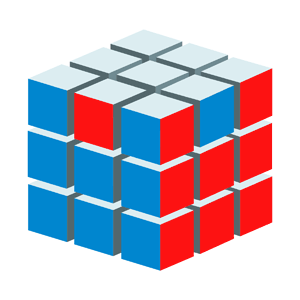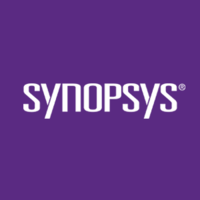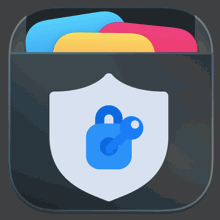Description

Tenable Nessus

ImmuniWeb® On-Demand
Comprehensive Overview: Tenable Nessus vs ImmuniWeb® On-Demand
Tenable Nessus and ImmuniWeb® On-Demand are two prominent solutions in the cybersecurity market, each offering distinct functionalities and targeting specific market segments. Here’s a comprehensive overview of both:
Tenable Nessus
a) Primary Functions and Target Markets
-
Primary Functions: Nessus is primarily a vulnerability scanner developed by Tenable Inc. Its main functions include identifying vulnerabilities, configuration issues, malware, and missing patches across various IT environments. It is renowned for its extensive vulnerability database and regularly updated threat coverage.
-
Target Markets: Nessus targets organizations of various sizes, ranging from small and medium-sized businesses (SMBs) to large enterprises. Its user-friendly interface and comprehensive reporting make it appealing to IT professionals and security teams seeking to bolster their vulnerability management processes.
b) Market Share and User Base
- Nessus is one of the most widely used vulnerability scanners globally. It commands a significant market share due to its longevity, robust feature set, and regular updates. The open-source version, Nessus Community Edition, has contributed to its widespread adoption, especially among smaller organizations that cannot afford enterprise-grade solutions.
c) Key Differentiating Factors
- Extensive Vulnerability Coverage: Nessus offers a vast range of vulnerability checks across different operating systems, applications, and devices, making it highly versatile.
- Integration and Plugins: Its plugin architecture allows for rapid integration of the latest vulnerabilities, and it can integrate with various other security solutions for comprehensive security management.
- Ease of Use: Known for its intuitive interface and easy deployment, Nessus is user-friendly for IT teams at various skill levels.
ImmuniWeb® On-Demand
a) Primary Functions and Target Markets
-
Primary Functions: ImmuniWeb® On-Demand offers a suite of application security testing services, including web application security testing, mobile application testing, and API security testing. It adopts an AI-enhanced approach to identify and mitigate security vulnerabilities.
-
Target Markets: It primarily targets organizations that depend heavily on application security, including industries such as finance, healthcare, and e-commerce, where protecting customer data and maintaining compliance are critical.
b) Market Share and User Base
- While not as broadly deployed as Nessus in the vulnerability management segment, ImmuniWeb® On-Demand is a significant player in application security testing. Its cloud-based, AI-driven testing services appeal to organizations looking for sophisticated, scalable security solutions that can adapt to evolving threats.
c) Key Differentiating Factors
- AI-Driven Approach: ImmuniWeb leverages artificial intelligence to provide intelligent, automated scanning which can enhance accuracy and efficiency in identifying vulnerabilities.
- Focus on Application Security: Concentrating specifically on web and mobile application security gives it an edge in those areas compared to generalized vulnerability scanners.
- Compliance and Risk Management: Provides features to assist organizations in managing compliance with standards such as GDPR and PCI DSS, beyond just technical vulnerability scanning.
Comparisons
- Functionality: Nessus is a general-purpose vulnerability scanner while ImmuniWeb specializes in application security testing.
- User Base: Nessus has a larger user base due to its general applicability, while ImmuniWeb caters more to specialized markets needing advanced application security.
- Technological Edge: ImmuniWeb’s use of AI sets it apart in terms of innovation, especially for dynamic and evolving web and mobile ecosystems.
Both products serve crucial roles in cybersecurity, albeit addressing different aspects and types of risks. The choice between them often depends on the specific security needs and maturity level of an organization's cybersecurity infrastructure.
Contact Info

Year founded :
Not Available
Not Available
Not Available
Not Available
Not Available

Year founded :
Not Available
Not Available
Not Available
Not Available
Not Available
Feature Similarity Breakdown: Tenable Nessus, ImmuniWeb® On-Demand
When comparing Tenable Nessus and ImmuniWeb® On-Demand, we must consider that both tools are designed to enhance cybersecurity measures, but they may serve slightly different use cases. Here's a breakdown of their features:
a) Core Features in Common:
-
Vulnerability Scanning:
- Both products are equipped to conduct comprehensive vulnerability assessments. They identify and report vulnerabilities in networks, applications, and IT infrastructures.
-
Reporting and Analytics:
- Each solution provides detailed reports with insights and analytics that help organizations understand security posture and prioritize remediation efforts.
-
Compliance Scanning:
- Both tools assist in checking compliance against various industry standards like CIS, PCI-DSS, HIPAA, etc.
-
Risk Assessment:
- These tools analyze the severity of vulnerabilities and assess risk levels, aiding in risk management and mitigation strategies.
-
Integration Capabilities:
- Each product supports integration with other security tools and platforms to enhance overall security workflow.
b) Comparison of User Interfaces:
-
Tenable Nessus:
- Known for its intuitive dashboard, Nessus offers a user-friendly interface that visualizes vulnerability data effectively. The UI is designed for ease of use, providing straightforward navigation and customization options for reporting.
-
ImmuniWeb® On-Demand:
- ImmuniWeb also provides a clean and user-friendly interface, albeit with a focus on ease of understanding for non-security personnel. The interface is streamlined to offer quick insights and actionable data without overwhelming users with technical details.
Overall Comparison: While both interfaces are user-friendly, Tenable Nessus tends to cater more to technical users with its more robust customization options, whereas ImmuniWeb focuses on simplicity and clarity which may appeal more to stakeholders and less technical team members.
c) Unique Features:
- Tenable Nessus:
- Plugin Architecture: Nessus uses a plugin-based approach allowing it to stay updated with the latest vulnerability information.
- Live Results: Nessus can analyze vulnerability data in real-time without initiating a new scan, which is useful for dynamic environments.
- ImmuniWeb® On-Demand:
- AI and Machine Learning: ImmuniWeb leverages AI to enhance vulnerability detection accuracy and reduce false positives.
- On-Demand Web Security Testing: Provides the flexibility of conducting security tests on demand, without the need for constant scanner operation.
- Privacy and Security Certifications: ImmuniWeb is known for its strict adherence to privacy standards and certifications, making it highly suitable for organizations with stringent data privacy needs.
These unique aspects may guide a user to choose one product over the other depending on specific organizational needs and technical focus.
Features

Not Available

Not Available
Best Fit Use Cases: Tenable Nessus, ImmuniWeb® On-Demand
Tenable Nessus and ImmuniWeb® On-Demand are both prominent cybersecurity solutions, but they serve different use cases and cater to varying needs. Here’s how they fit into different scenarios:
a) Best Fit Use Cases for Tenable Nessus
-
Vulnerability Assessment:
- Businesses: Mid-sized to large enterprises that require comprehensive vulnerability assessments across a wide range of systems and networks.
- Projects: Organizations focused on maintaining robust internal security postures by identifying and addressing potential security vulnerabilities.
-
IT Security and Compliance:
- Companies needing to adhere to specific industry compliance standards (e.g., PCI DSS, HIPAA).
- Ideal for businesses with an established IT security team, as Nessus provides detailed insights that security professionals and system administrators can act upon.
-
Infrastructure Diversity:
- Businesses with a diverse IT environment that includes legacy systems, cloud infrastructure, and hybrid setups. Nessus supports a wide variety of platforms and environments, making it versatile.
-
Continuous Monitoring and Penetration Testing:
- Organizations engaged in regular security testing and continuous vulnerability monitoring for proactive threat management.
b) Preferred Scenarios for ImmuniWeb® On-Demand
-
Web and Mobile Application Security Testing:
- Businesses: Startups to large enterprises that develop, deploy, or manage web and mobile applications.
- Projects: Businesses involved in frequent application development cycles requiring dynamic and flexible security testing models.
-
Comprehensive Security Testing Services:
- Companies seeking a more managed or service-oriented approach to web application security testing.
- Projects needing precise assessment of security posture, including penetration testing, vulnerability scanning, and risk management services.
-
Scalability and Flexibility:
- Businesses in growth phases needing scalable solutions without extensive in-house security resources.
- Ideal for companies looking for an on-demand, pay-as-you-go model rather than continuous engagement.
-
Industry-Specific Security Needs:
- Industries such as finance, healthcare, and e-commerce, where web application vulnerabilities could lead to significant business risk.
d) Catering to Different Industry Verticals or Company Sizes
-
Tenable Nessus:
- Industry Verticals: Banking, healthcare, government, and technology sectors where deep, ongoing vulnerability management is crucial.
- Company Sizes: Medium to large enterprises with established IT departments capable of interpreting detailed vulnerability data and implementing fixes.
-
ImmuniWeb® On-Demand:
- Industry Verticals: E-commerce, digital agencies, SaaS providers, and companies with significant online service offerings.
- Company Sizes: Startups to large enterprises, especially those that prioritize flexible, comprehensive security solutions integrated into development cycles or focusing on application security rather than infrastructure.
Ultimately, the choice between Tenable Nessus and ImmuniWeb® On-Demand depends on the specific security needs, size, industry focus, and infrastructure complexity of the organization. Organizations might even see value in using both tools complementary to cover a broader spectrum of their cybersecurity needs.
Pricing

Pricing Not Available

Pricing Not Available
Metrics History
Metrics History
Comparing undefined across companies
Conclusion & Final Verdict: Tenable Nessus vs ImmuniWeb® On-Demand
To provide a comprehensive conclusion and final verdict on Tenable Nessus and ImmuniWeb® On-Demand, let's break down the analysis based on the specified points:
a) Best Overall Value
Tenable Nessus is well-regarded for its comprehensive vulnerability assessment capabilities, offering extensive scan coverage and depth. It is especially valuable for users who need a robust, on-premises solution with detailed reporting capabilities. Its pricing is competitive for organizations looking for scalable vulnerability management tools. Nessus is generally favored by organizations with in-house security teams that require granular control over their scans and configurations.
ImmuniWeb® On-Demand, on the other hand, is praised for its AI-powered security testing and the convenience of a cloud-based solution. It offers a more holistic approach, combining vulnerability scanning with penetration testing and compliance monitoring. Its flexibility and integration features make it appealing for organizations that need a broader, more integrated solution without heavy reliance on internal resources.
Verdict: For organizations that prioritize detailed and customizable scanning capabilities and have an in-house team to manage it, Tenable Nessus provides excellent value. For companies looking for a cloud-based, integrated approach with advanced AI capabilities and lesser dependency on internal resources, ImmuniWeb® On-Demand offers superior value.
b) Pros and Cons
Tenable Nessus:
-
Pros:
- Comprehensive vulnerability coverage.
- Detailed reporting and scanning capabilities.
- Flexible deployment with on-premises solutions.
- Strong community support and industry reputation.
-
Cons:
- Requires more technical expertise to manage and configure effectively.
- Can be resource-intensive, potentially requiring dedicated infrastructure.
- Primarily focused on vulnerability scanning, with other security functionalities requiring additional solutions.
ImmuniWeb® On-Demand:
-
Pros:
- Combines vulnerability scanning with penetration testing and compliance checks.
- Cloud-based with AI-driven insights reduces the burden on internal resources.
- Simplifies integration with existing security frameworks.
- Provides a more comprehensive security assessment beyond vulnerabilities.
-
Cons:
- Higher initial costs for full-feature access may deter smaller enterprises.
- Dependency on cloud infrastructure might present compliance challenges for some industries.
- Some users may find less control over scan specifics compared to on-prem solutions.
c) Recommendations
-
Assess Internal Capabilities: Organizations with a strong in-house IT security team might prefer the control and detailed capabilities of Tenable Nessus. Those lacking extensive internal resources may benefit more from the comprehensive, managed approach of ImmuniWeb® On-Demand.
-
Evaluate Regulatory Requirements: Consider the compliance and reporting needs. ImmuniWeb’s integrated approach to compliance might be more suitable for industries with strict regulations.
-
Budget and Resource Allocation: Weigh the cost of acquisition, maintenance, and operation. While Tenable Nessus might have a lower entry cost, the demands on internal resources might be higher compared to the cloud-based and automated ImmuniWeb® On-Demand.
-
Long-term Strategy: Consider the organization's long-term cybersecurity strategy. If the plan includes integrating multiple products for a fuller security stack, ImmuniWeb’s integrated offerings could be more future-proof.
Ultimately, the choice between Tenable Nessus and ImmuniWeb® On-Demand should align with organizational needs, expertise, and strategic priorities.
Add to compare
Add similar companies



